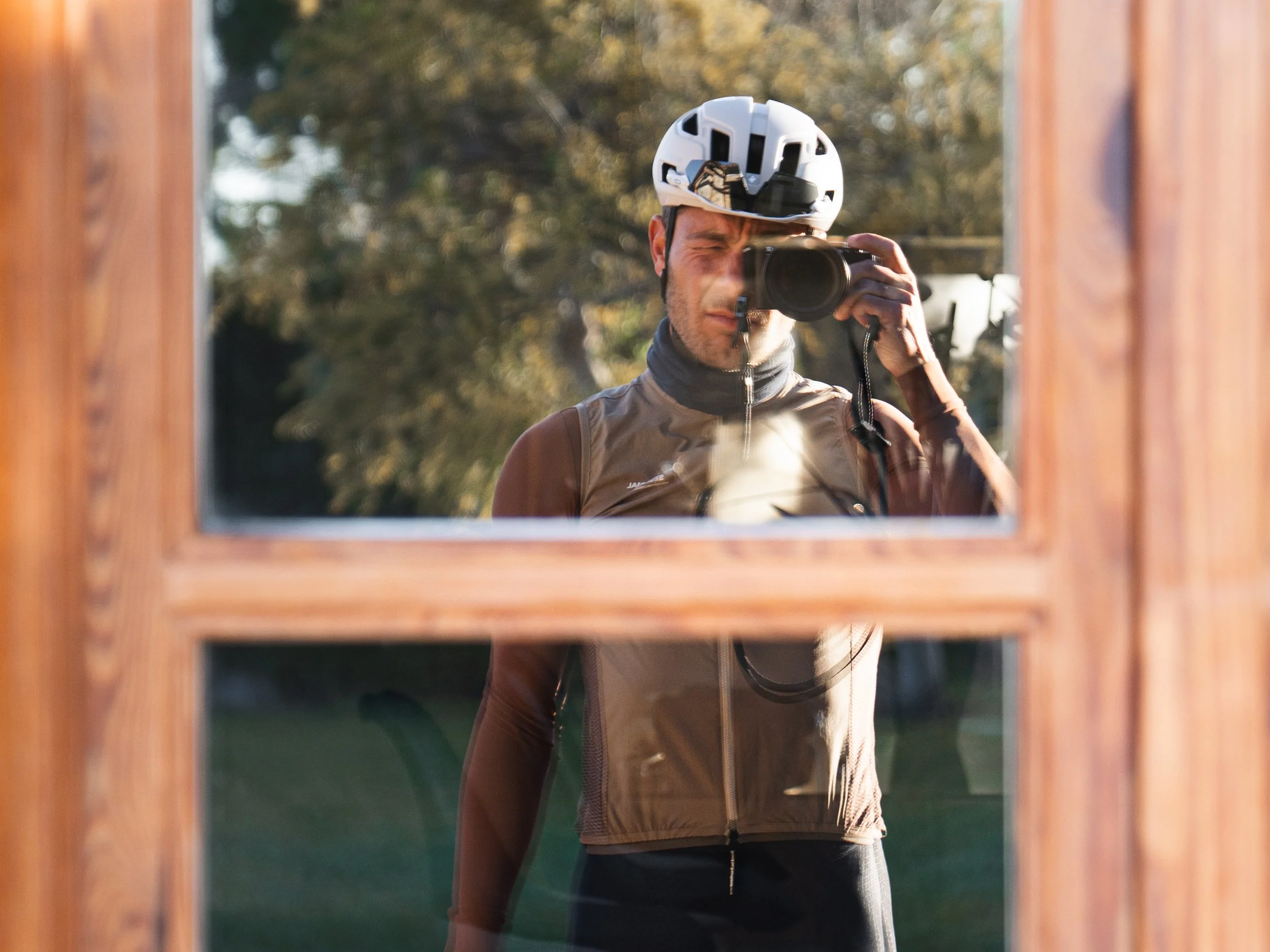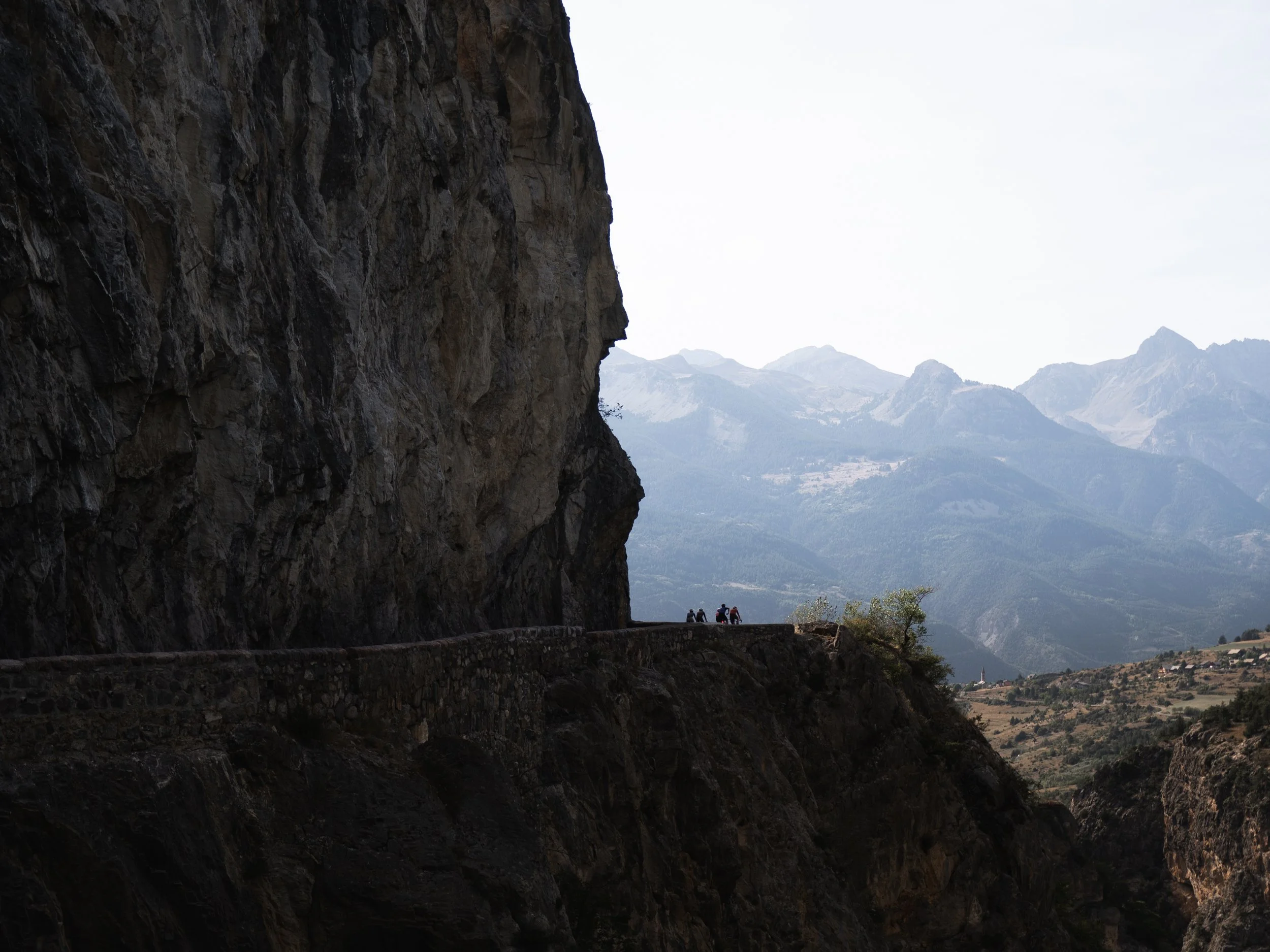I Only Became a Professional Photographer When I Stopped Shooting for Instagram
It was out on just a regular ride on familiar roads when a thought crept in. The thought that I had to take a photo. Not because inspiration moved me. Not because the light was doing something incredible. No. Nothing like that. It was only because I hadn’t posted on Instagram in a while. And in that certain moment, that thought suddenly felt truly absurd. Forcing creativity to feed an algorithm. I realised I wasn’t creating for myself. Not even for an audience. But just for a stupid app.
Until then, early 2022, I’d even ask friends to take photos of me during rides. I’d brief them like a director. Frame it like this. Wait for that car. Can we try that again? The shot rarely turned out how I’d imagined. But I’d still post it, because that’s what I thought Instagram wanted. Sort of aesthetic digestible cycling content.
But then it clicked. I didn’t necessarily want to be the subject. I wanted to make the shot.
Rather no likes than no self
I decided I’d rather be posting for myself and have no likes, than posting for the likes and have no self. I started chasing great compositions instead of likes.
And from this personal experience, I think I gained a few valuable lessons worth sharing. For if you're navigating creativity, social media, or simply trying to make sense of what the snaps you make on your phone are for.
Lesson One: You Become What You Scroll
First, I cleared out the noise. I unfollowed a bunch of accounts that were like a carousel of sameness. Same pose. Same composition. Only shot on a different day in a different jersey.
In their place, I started to follow photographers from outside of my cycling bubble. Landscape artists. Street shooters. Architecture obsessives. And with that fresh feed, my eye began to change. My time spent on Instagram became fun and inspiring again.
If your creative fuel is running low, look at what you’re consuming. You don’t have to copy them. But exposure to new styles, unfamiliar styles and different styles will quietly reshape your vision. The best kind of inspiration often comes from unfamiliar places.
Lesson Two: Not Everything Needs to Be Captured
I also stopped taking my camera on every ride. Of the about twenty thousand kilometres I pedal each year, only a handful of rides are documented with my camera. Usually, because it’s a client job. Sometimes, because the route promises to be cinematic. And, when I’m just in the mood.
The rest are mainly coffee rides. Mental resets. Rides with no intention beyond being out, letting thoughts spool out and drinking an espresso somewhere.
If I do bring my camera, it’s now usually just with my little fixed 35mm lens. My 24-70mm zoom lens, of nearly a kilo, stays home unless absolutely needed. In thirty-degree heat on a long day out, weight matters. Although I used to haul that heavy zoom everywhere because it’s brilliant for mountain shoots, it was also a burden. What I’ve learned over time is that I ride to ride. In good company. For conversations. For shared awe.
Pictures aren’t that important anymore. If I bring my camera along, it’s not because I have the feeling I have to post, but because I want to preserve something. Visually. And the whole Instagram thing comes fourth nowadays.
So I would say ride light. Ride fully. Shoot when the moment deserves it. And in most cases, your phone works fine.
Lesson Three: Reach Is Not the Same as Resonance
As I stepped away from the social media content hamster wheel, I strongly had the feeling that Instagram didn’t know what to make of me. My numbers dipped. Probably because my photos didn’t scream 'cyclist' anymore.
More and more, my photos were about a crazy nice road ahead. A trick of the light. About transmitting a feeling.
But something else changed. The slowed, but the engagement deepened. Instead of meaningless emoji comments, I received questions. People asked about the shot, the lens, the location. Some wanted wallpaper files for their laptops. Not because my post had gone viral, but because it meant something to them.
Then came the brands. Not with discount codes or affiliate links anymore, but with jobs. They wanted my work. The kind I’d already been doing. My photos. My way. That’s when I realised something had quietly shifted. I became a professional photographer.
I learned that if your work is honest and consistent, people will find it. Eventually. And when they do, they’ll care.
Lesson Four: The Most Honest Work Often Happens Offstage
I still get sent stuff sometimes. But mainly it’s for creative work. Not for staged content. Photography has become a significant part of my job, alongside writing, blogging and storytelling. It all flows from the same well.
And yes, Instagram still plays a role in how I make money with my business. But it’s no longer the mainstage. It’s more of a gallery. A scrapbook of stories. Of what I find interesting. What I feel. Not necessarily what I think might perform.
And the irony is that since my motivation has shifted from being seen to being artistic, I’m doing much better now.
Today, my Instagram is my personal but public journal. A visual diary. If a post performs well, lovely. If it doesn’t, no problem. I only post when I have something I want to show. Or something I want to say. No backlog. No scheduling. No bank of content for empty weeks. Just now. Instant gramming, as it was originally meant to be. Insta(nt)gram.
And the most funny thing is that a whole bunch of my favourite images have never been posted. They sit in my Lightroom library, unfiltered and unpublicised. And that’s fine if you shoot for yourself instead of likes.
Lesson Five: Create on Your Own Terms
Bottom line, I tell myself I only became a professional photographer when I stopped shooting for Instagram. Because the truth is that that’s when I finally started creating to express myself. That brings me to what is probably my most valuable lesson here.
If you want to build something meaningful, stop performing. The worst thing any performer can do is look at the audience. Step off the stage, get inspired. And only when inspiration hits, pick up that camera. Make work you care about, on your own terms. And let the world come to it, if it’s meant to.





